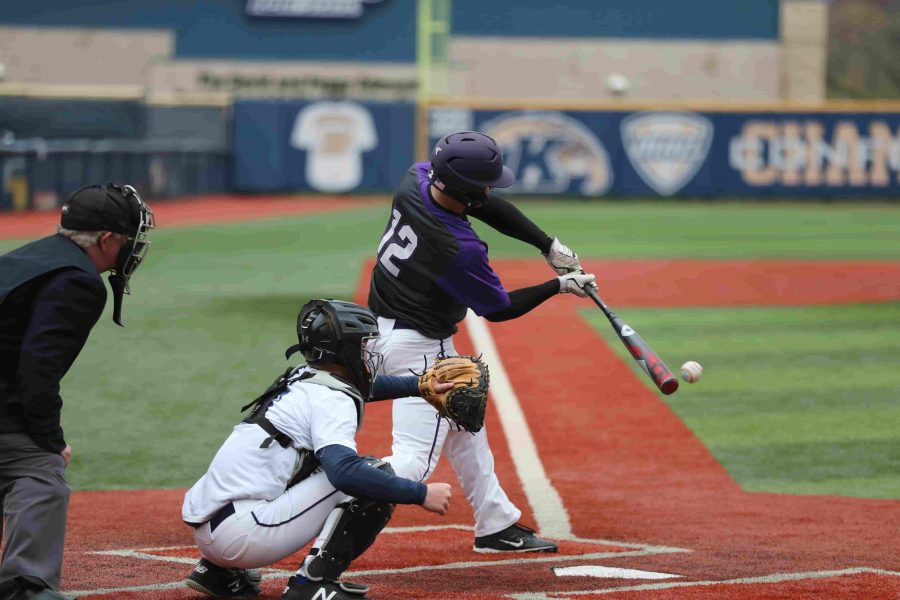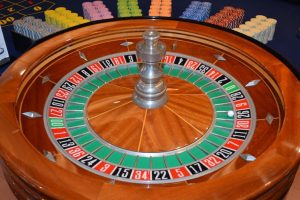You’ll stumble across a seemingly endless selection of sports betting terms when backing your favorite teams online. Understanding these terms is crucial, as it lets you make more informed bet selections and makes it easier to identify value in published odds.
Below, we’ve broken down the most commonly used sports betting jargon and terminology, providing a succinct definition for each one. We’ve done this alphabetically too, so you can quickly browse the list and define the betting slang and terms that are most relevant to you!
List of Sports Betting Terms
A
Accumulator
An accumulator describes a sports bet that includes two or more selections in a single wager. Each outcome’s odds are multiplied to create a single, extended price, while each pick must be successful for the wager to pay out. An accumulator may be described as a parlay in the US market.
Action
The word ‘Action’ is used to describe any live wagering option or the total amount bet on a particular event. Sportsbooks accept ‘action’ on all of their published betting lines and odds.
Across the Board
Commonly used in horse racing betting, ‘Across the Board’ describes a wager that covers three potential outcomes in a race. Also known as a ‘Win, Place and Show’ bet, you’ll receive variable payouts depending on whether your chosen runner finishes first, second or third.
AET Odds
This is primarily associated with live soccer betting markets, and stands for ‘After Extra Time’. Standard odds for soccer games cover regulation time only, but cup and knockout games may feature a period of extra time to ensure a definitive result. AET odds price all potential results and outcomes at the end of this period.
Alternative Betting Lines
Alternative betting lines can be found across multiple markets, and featured prices may be higher or lower than the main moneyline odds. You’ll most commonly find alternative betting lines when engaging in point spread and totals betting.
American Odds
American odds describes a popular odds format that’s defined by three digit numbers with either a ‘plus’ or a ‘minus’ sign. A plus sign indicates a betting underdog, while the corresponding number (such as +107) tells you how much you’ll win if you successfully stake $100. A minus sign is indicative of a betting favorite, while the number (like -101) relays how much you’ll need to wager to win $100.
Ante-Post
Synonymous with horse race betting, ante-post prices are effectively futures odds published for upcoming races. Ante post odds are published at least one day prior to a particular race, while they’re commonly found on high profile events such as the Kentucky Derby.
Anytime Scorer
This is one of the more common sports betting terms used in soccer. It describes a betting market that enables you to back a player to score at any point during a particular game, while it’s available as either a pre-game or in-play wagering option.
Asian Handicap
Another common feature in the soccer betting dictionary, an ‘Asian Handicap’ allows you to apply a virtual disadvantage to a heavy betting favorite and back them to win at enhanced prices. Asian handicaps as they eliminate the draw as a potential outcome through the use of half points, while they commonly start at -0.25 goals.
Against the Spread (ATS)
Against the Spread (or ATS) describes a scenario where you place a bet on a particular points spread. Spreads are predetermined points ranges (such as -3.5) that may be used to handicap heavy betting favorites and create more favorable betting odds. Sportsbooks set various points spreads as individual betting lines that you’ll be able to choose from.
Arbitrage (ARB)
Often shortened to ‘ARB’, arbitrage betting is a wagering strategy that aims to cover all potential outcomes in a specific game. An example of this is matched betting in soccer, where you use a free bet to lay a back bet against a betting favorite at an exchange and guarantee at least an incremental profit.
B
Backdoor Cover
This sports betting term describes an instance where a betting favorite or underdog is trailing by more than your designated points spread but subsequently scores points late on to cover the spread and cost you your stake. However, this score has no impact on the result of the actual game.
Bad Beat
More broadly speaking, a ‘Bad Beat’ refers to a late (and often unlikely) play or event that affects either your points spread or totals wager in the final seconds of a match. A backdoor cover is a type of bad beat.
Bankroll
A bankroll describes a sum of money that you set aside for the purpose of sports betting. This may be deposited into your sportsbook account and should cover a designated period of time, depending on how frequently you wager.
Bankroll Management
Bankroll management refers to the organization and deployment of your sports betting budget. This may include setting deposit and wagering limits, in addition to seeking out the most competitive odds. As a fundamental rule, your bankroll should never exceed an amount that you can comfortably afford to lose.
Bet
One of the most straightforward of all gambling terms, a bet describes the act of wagering money at a sportsbook, casino, racebook or poker room. Sports bet may be placed on available disciplines, events and matches.
Betting Strategy
A betting strategy will describe any kind of deliberate plan or approach to deploy your bankroll. It may focus on elements such as setting optimal stake amounts and gaining a competitive advantage over sportsbooks. You’ll find significant crossover between your bankroll management and betting strategy.
Bookmaker (Bookie)
Bookmakers (also called bookies or sportsbooks) are licensed entities that set daily odds and betting lines across different markets. They also accept bets and issue payouts to bettors who wager successfully.
Buy Points
When you ‘buy points’ in sports betting, you’re effectively accessing a superior point spread in exchange for a higher stake. In theory, this affords you the chance to cover one or more additional betting lines in the point spread, while your financial commitment will increase with every point that you buy.
Register with BetOnline and take advantage of their generous welcome bonus!
50% Welcome Bonus Up to $1,000 50% Welcome Bonus Up to $1,000
C
Circled Game
Injuries and suspensions can have a huge impact on sports outcomes and results. So, a ‘circled game’ refers to a match where sportsbooks may reduce their betting limits or options amid reports of one competing team reporting a significant number of injuries.
Chalk
In sports betting parlance, ‘chalk’ describes a heavy and significant betting favorite. For example, a team favored with a huge point spread would most likely be referred to as chalk.
Closing Line Value
The ‘Closing Line Value’ (CLV) describes the difference between an event’s starting odds and final price as the match or tournament gets underway. It can be incredibly useful when defining your profitability as a bettor and whether or not you’re able to beat the market.
Commission
When sportsbooks calculate odds, they often guarantee an incremental profit per betting line by charging a commission. This may also be referred to as the ‘juice’ or ‘vig’, while it’s usual for sportsbooks to apply a 10% commission per individual transaction.
Correct Score
With ‘correct score’ betting, you’ll wager on the exact score in a particular match. This wagering market is most popular in football betting, which is considered to be a high-risk bet type that allows you to bet at enhanced odds.
Cover/Cover the Spread
When you ‘cover the spread’, your points spread wager has been successful. For example, if you backed the 49ers to beat the Chiefs with a -10.5-point spread and they subsequently won 32-21, you’d beat the spread and receive a payout.
D
Decimal Odds
The decimal odds format is widely used in Europe, which features a single number to two decimal places. This relays precisely how much you can win for every $1 wagered (including your stake amount), while the format makes it easy to calculate the implied probability of a particular outcome occurring.
Double Action
‘Double Action’ describes a wager that includes multiple selections and is similar to a parlay. However, it must include two or more teams that are required to play at different times, while it may also be described as an ‘if’ bet.
Draw
In sports like soccer, the ‘draw’ describes a scenario where a game ends in a tie. It, therefore, has to be factored into your thinking when betting on football matches, although the draw is not a realistic consideration when wagering on basketball, football, or rugby.
Drift
In pre-game or ante-post markets, prices tend to change prior to the start of an event. When the odds of a particular team or player lengthen, they’re said to have ‘drifted.’ While this theoretically increases your potential returns, it often occurs because significantly more money has been placed on alternative competitors. Prices may also drift as new information comes to light.
E
Each Way
An each-way bet comprises two separate wagers: namely, a ‘win’ bet and a ‘place’ bet. So, you can split your stake between these two outcomes and simultaneously back your pick to win and place. It’s most common in horse racing betting, while runners typically have to finish in the top four for a place wager to pay out.
Edge
In casino and sports betting, there’s such a thing as a ‘house edge’. However, you may also seek out a competitive edge over sportsbooks, typically through strategies such as arbitrage betting, carrying out extensive analysis, and the strategic use of free bets.
Even Money
When you successfully leverage an even money bet or market, you’ll bank winnings that are equal to your stake amount. For example, if you were to bet on the outcome of a coin toss before a cricket match, the odds would be +100 for heads and +100 for tails. This may also be referred to as ‘50-50’ betting.
Exotic
An exotic bet may be placed on in-game events and outcomes that aren’t directly related to the final outcome. The most common iteration is prop bets. For example, you could wager on a player completing a specific number of rebounds in an NBA game or the identity of the top points scorer in a particular game.
Exposure
In sports betting, ‘exposure’ describes the amount of money you or a sportsbook could potentially lose on any given wager. Bookies may also calculate their total exposure based on the volume of bets placed on a specific event.
F
Favorite
In sports betting terminology, the ‘favorite’ describes a team or player most fancied to win a match or event. You can back betting favorites through pre-game and in-play markets, although the published odds may not be as competitive when wagering in real-time.
Field
In betting terms, the field describes the listed competitors in a tournament, league or race. It’s most commonly used to discuss the runners in horse racing betting, while larger fields typically help you access enhanced ante-post odds.
First Half Bet
In sports like soccer and football, games are split into two halves. So, a ‘First Half Bet’ describes wagers that are placed during the first 45 minutes of a soccer game or 30 minutes of an NFL match. For example, you may back the score at the end of the first half or pick both sides to score during this period.
Fixed Odds
Fixed odds describe prices that are predetermined and locked into place when you execute your wager. Therefore, you’re able to calculate your return if your pick is successful accurately!
Fractional Odds
This odds format is often seen in the UK, featuring two numbers separated by a slash. The first number relays how much you can potentially win in relation to the second, which describes your stake amount. So, if you successfully bet $10 at odds of 5/1, you’ll bank $50 exclusive of your stake.
Futures
Futures bets may also be described as outright wagers, while they describe bets that are placed on the winner of a particular league or tournament. This includes wagers on the winner of events such as the Super Bowl, Stanley Cup or NBA finals, while futures bets may be placed on events that are either upcoming or scheduled for the distant future.
G
Graded Bet
If you hear the terminology ‘graded bet’, this describes a wager that has been officially declared as a winner or loser (or a push once the match has started). More commonly, this may be referred to as a ‘settled bet’.
H
Handicap (Handicapping)
This sports betting term is often used interchangeably with point spreading, as it allows you to attribute a goals or points disadvantage or a betting favorite and wager at enhanced odds. Conversely, you can apply a goals or points advantage to a betting underdog, unlocking further price benefits in the future.
Handle
When people discuss the wider gambling market, the ‘handle’ is one of the most commonly used sports betting terms. This refers to the total amount of money that has been wagered by bettors, either on a specific event or during a financial reporting period.
Hedge
In sports betting, ‘hedging’ describes the process of placing two or more bets on a single event. Often, you’ll place a wager that directly opposes your initial bet, in order to cover all potential match outcomes. This can guarantee a profit in instances where you use free bets.
Home Field Advantage
Home field advantage describes the innate advantage that teams have when they play in front of their own fans. This varies from one sport to another, but it’s highly prevalent and a key factor in how outcomes are priced. For context, approximately 59% of NHL games are won by the home side, while this figure drops to 57.6% in the NFL.
Hook
The ‘hook’ is an underused sports betting term, and one that describes a half point. For example, you may choose to ‘buy’ the hook in a spread, creating a small advantage in exchange for an additional financial commitment. For example, if you did back the 49ers at -10.5 in the spread, buying the hook would turn that into a -10 handicap.
Create an account with Bovada and bet on every big game. Their lucrative welcome bonus gives first time bettors a lot to be excited about!
$750 Sports Welcome Bonus $750 Sports Welcome Bonus
I
If Bet
An ‘if’ bet enables you to combine between two and six bets in a single wager, just as you would in a parlay. However, these wagers are placed conditionally and across staged events, with each bet dependent on the result of your previous pick.
In-Play Betting
In-play betting describes wagers that are placed in real-time and during a specific game. Otherwise referred to as ‘live betting’, this unlocks a huge range of markets and micro bets and is characterized by fluctuating odds.
J
Juice
The term ‘Juice’ can be used interchangeably with both commission and vigorish in the field of sports betting. This is usually around 10% and is a key factor in determining published odds, ensuring that bookies bank at least a nominal profit on every wager placed.
L
Laying Points
If you ‘lay’ points in sports betting, you’re effectively wagering on a favorite. For example, a bet placed on the 49ers as a -3.5 favorite means that you’re laying 3.5 points. In this instance, the 49ers are required to win by at least four points for your wager to trigger a payout.
Limit
There are minimum and maximum limits applied in sports betting, on everything from welcome bonus T&Cs to individual wagers. Often, maximum limits are applied to specific games and sporting events, as this helps sportsbooks to manage their losses and maintain profitability across the board.
Line
A ‘line’ or ‘betting line’ refers to the odds published by a sportsbook in relation to a particular event. Typically, games and competitions will unlock multiple lines, including moneylines, point spreads and totals.
Live Betting
The term ‘live betting’ may be used interchangeably with in-play wagering and covers all wagers placed during a specific match. You’ll typically find thousands of live betting markets online, especially when wagering on high-profile sports such as basketball, football, and baseball.
Lock
A ‘lock’ is a term that tipsters may use. It describes so-called “certain winners” while it may be deployed to tempt bettors into wagering or buying handicapping advice. A lock is certainly a guaranteed winner in the eyes of the person who places the bet!
Longshot
‘Longshot’ is the colloquial term for underdog, and describes a team, player or runner who’s an unlikely winner. You can usually back longshots at extended prices, but these contenders are usually significantly inferior to their opponents.
M
March Madness
Whenever basketball betting is explained, you may stumble across the term ‘March Madness’. This describes the time of year when the annual men’s and women’s NCAA Division I basketball tournaments get underway. You’ll often access March Madness betting pools at online sportsbooks, alongside enhanced moneylines and point spreads.
Moneyline
This is arguably the most common of sports betting terms. It also describes the most straightforward type of sports wager, which requires you to back the winner or outcome of a particular game.
N
Nap
Interestingly, the word ‘nap’ in this instance is derived from the card game Napoleon. A nap bet describes a wager that’s your best of the day, and has similarities to a lock. This may also describe someone else’s best bet and one you’re encouraged to replicate.
Novelty Bets
Sportsbooks tend to cover multiple markets outside of professional and collegiate sports. So, a novelty bet describes wagers that are placed on random events in entertainment and politics, such as Oscar winners or the identity of the next US president. The term may also be expanded to include or bespoke or special sports bets.
O
Odds
Odds are the prices and betting lines set by sportsbooks on specific matches and events. There are various factors that contribute to the setting of odds, while prices are also liable to change in the build-up to and even during an event.
Odds-on Favorite
This term describes a short price favorite, and typically carries short and low value odds. The term is synonymous with the fractional odds format, but prices shorter than 2.00 (decimal odds and -101 (American odds) may also be categorized as being ‘odds-on’.
Outright Betting
This term may be used interchangeably with futures betting, and it describes the process of backing the winner of a future event or tournament. This may unlock highly competitive prices, depending on the size of the competing field and the number of likely winners.
Over/Under Betting
Over/under markets are synonymous with specific games’ points, goals, or run totals. Usually, sportsbooks will present various points totals as individual betting lines, each of which has its own unique odds. You’ll then select your preferred betting line and wager on whether the total will be over or under this threshold.
P
Parlay
A parlay describes any single wager that features two or more selections. The odds of each pick are then multiplied to create a single, enhanced price, while every selection will have to win if you receive a payout.
Payout
This describes the amount you’ll bank when placing a winning wager. Your stake amount and your bet odds determine it. For example, if you successfully place a $100 single wager on Manchester City to win the Champions League (at decimal odds of 3.25), you’ll bank $325 inclusive of your initial bet.
Pick ‘Em
A ‘pick ‘em’ wager is a two-way contest where both competing sides or players have exactly equal odds to prevail. With this type of wager, there’s no point spread to consider, so you’ll simply have to pick which contender you think will win.
Power Rankings
If you see the term ‘Power Rankings’ referenced in a sports betting glossary, this describes specific ratings used by both experts and bettors to identify the best-performing teams or players over time. Pundits regularly release weekly NFL player rankings, for example, in order to help inform match or futures wagers.
Post Time
The post time describes the scheduled start time of a horse race. Horse races are considered to be “at the post” just as soon as all of them are loaded into the relevant starting gate.
Price
This betting term is used interchangeably with odds and is set by the bookmaker in relation to every single event and betting line.
Proposition Bet
A proposition or ‘prop’ bet is an exotic wager related to individual or collective performances during matches. Player props may be associated with the number of points or rebounds recorded in an NBA game or the identity of the next goalscorer in a soccer match. You’ll find hundreds of prop bets associated with high-profile games like the Super Bowl.
Public Money
This describes the amount of money staked by the general public on a specific betting line or event. This offers an insight into betting volumes and who bettors are backing to win a match or competition!
Puck Line
This sports betting term is synonymous with hockey wagering. More specifically, it describes the point spread in hockey, with favorites often posted with a spread of -1.5 goals while the underdogs receive +1.5 goals from sportsbooks.
Push
This describes any wager on an event that subsequently ends in a tie. For example, if your NFL spread is -11 and the final result is 32-21 in favor of your pick, your wager is categorized as a ‘push’ and your initial stake is refunded.
Get in on the action today with BetWhale’s wide range of betting markets and sporting events!
125% Deposit Bonus - Up to $1,250 to Bet on Sports 125% Deposit Bonus - Up to $1,250 to Bet on Sports
Q
Quarter Bet
This is commonly associated with NBA and NFL wagering. It’s a bet type that can be placed before or during any quarter of a match and usually focuses on the winner of that particular quarter. Moneylines, point spreads, and totals wagers popular quarter bets, although odds are liable to fluctuate widely in play.
R
Recreational Bettor
A recreational or casual bettor is someone who bets nominal amounts and infrequently on sporting outcomes. Stakes committed by recreational bettors count towards public money totals, while this type of gambler is the polar opposite of a sharp or professional operator.
ROI
This stands for ‘return on investment’, and in the case of sports betting, it describes the amount that you win in relation to your stake. This can be calculated on individual bets or across multiple wagers during a specified period of time.
Run Line
The ‘run line’ describes the point spread in baseball. Like the puck line in hockey, favorites are usually posted with a spread of -1.5 runs, while the underdog is awarded +1.5 runs at the outset. If you access run lines in-play, you’ll see that odds fluctuate as the game unfolds.
S
Sell Points
When you ‘sell points’ on a betting favorite, you’re effectively wagering on them winning by more points than the fixed betting line. If you sell points on an underdog, you’re backing them to either lose by a smaller margin than the spread or potentially win by a nominal amount (such as one goal or 3.5 points).
Sharp
A sharp is a bettor who’s informed and has a track record of success in sports wagering. A sharp may also be a professional bettor, but this won’t be the case often. Sharps also operate in other betting verticals, such as casino and poker.
Spread Betting
With spread betting, you’ll typically use different point spreads to level the playing field and back short-priced favorites at enhanced odds. This is also referred to as ‘handicap’ wagering.
Stake
This describes the amount that you’ll bet on a particular outcome. Along with the odds at which you wager, your stake amount will also determine your payout if your pick is successful.
Straight Bet
A ‘straight’ bet describes any single wager placed on a money line, spread, or points total.
T
Teaser
Bookmakers offer teaser odds to entice bettors and increase wagering activity around a specific event. Typically, this involves creating enhanced betting lines for favorites, while players can also tease odds by accessing alternate lines or parlays markets.
Tipster
A tipster is someone with betting expertise who offers advice ahead of specific events. Many specialize in specific sports, while they may offer advice independently or through a reputable betting site.
U
Underdog
‘Underdog’ is the sports betting term given to teams or players who aren’t expected to win a match or competition. You can usually bet on underdogs to win at enhanced odds, as there’s a low implied probability of them prevailing.
Units
In sports betting, a ‘unit’ describes the percentage of the total bankroll you’re willing to risk on a particular bet. You can increase your betting unit when wagering on short-price favorites that have a high implied probability of winning.
V
Vigorish
Also referred to as ‘Juice’ or ‘Commission’, this describes the premium sportsbooks apply to individual odds. This guarantees at least some profit, while the vigorish is usually charged at around 10%.
W
Wager
Wager is another word for bet and describes the action of staking money on specific lines, events, and markets.
Responsible Gambling
Of course, responsible gambling is also one of the most important sports betting term, especially for online bettors. Remember, sports betting of any description requires you to incur the risk of loss, while there’s no such thing as a surefire winner in any discipline!
The good news is that you can take steps to wager responsibly as a bettor. Firstly, you should never wager any more than you can comfortably afford to lose, while we’d also recommend using tools like deposit limits to manage your bankroll over a specific timeframe.
But what do you do in instances where you find yourself betting outside of your means (or wagering with increased frequency)? Well, your first port of call should be to contact the National Problem Gambling Helpline on 1-800-GAMBLER, as this can provide advice and practical support.
You can also visit the organization’s official website online, to find out more about gambling addiction and its potential harms.




























